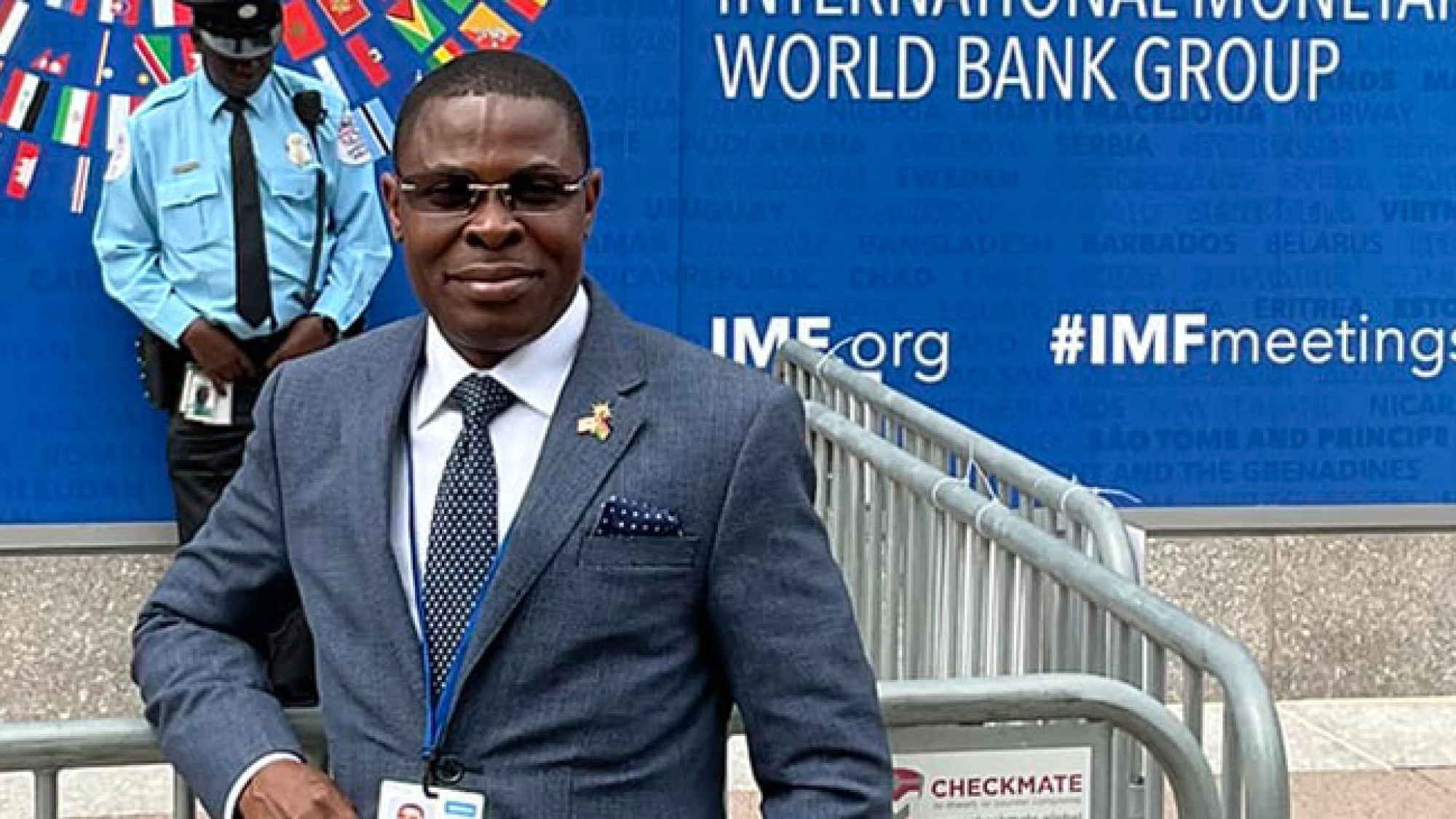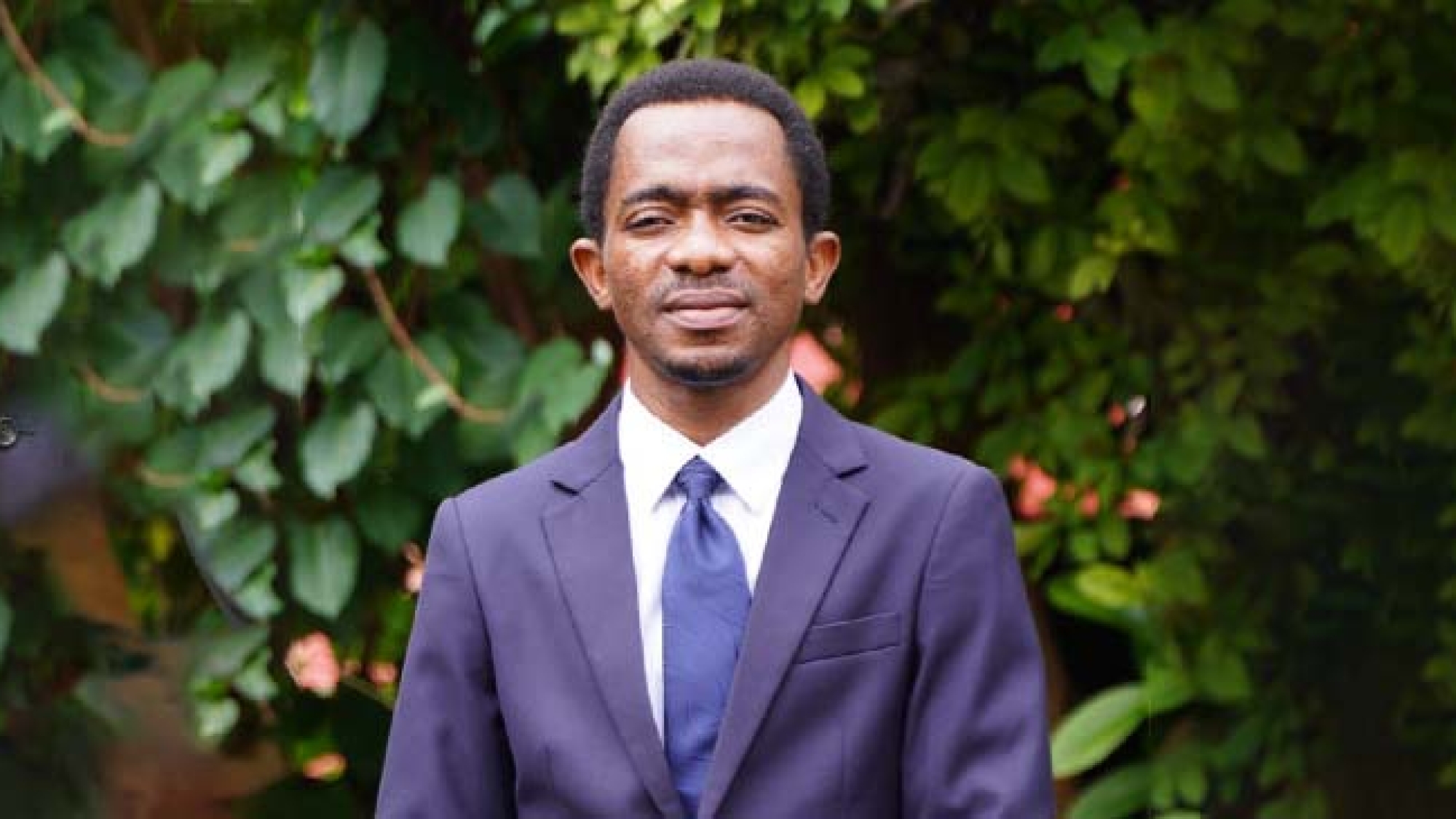INTRODUCTION
In a world brimming with both material wealth and spiritual depth, the potential for collaboration between the World Bank Group and Christian denominations to eradicate poverty in the world is undeniable. By uniting the financial expertise and global reach of the World Bank with the grassroots networks, moral authority, and compassionate outreach of churches, we can unlock unprecedented opportunities for sustainable development and social justice.
The World Bank estimated that around 700 million people live on less than $2.15 per day, which is the extreme poverty line. The world is waiting for a period where the resources of finance and the compassion of faith can converge to rewrite the story of poverty. It would be a mind-blowing initiative. As two formidable forces—one rooted in financial prowess and the other in unwavering compassion—the stage is set for an unprecedented partnership with the power to redefine global development. Together, the World Bank and Christian denominations possess the tools to transcend economic barriers and mend social divides, thereby forging pathways to prosperity that honour both the dignity of every individual and the collective responsibility to uplift the marginalised.
Poverty is a problem that has been around since the dawn of time and is still a major issue today. There are many different definitions of poverty and its causes. The World Bank defines it as “the inability to attain a minimal standard of living.” In an article written by the Financial Times, entitled “Churches Have Lost the Habit of Almsgiving,” they cite a definition of poverty formed by Ken Leech in 1982: “Poverty is not ‘a problem’; it is the pain of the dispossessed.”
THE WORLD BANK GROUP AND THE CHURCH
The World Bank is arguably the world’s most important development institution in the world. It has distributed billions of dollars over the years and currently oversees over 160 projects in many countries. It was established in 1944 at the Bretton Woods Conference and first named the International Bank for Reconstruction and Development (IBRD). The World Bank spends about $200 million on non-lending services and $30 billion on lending services every year, and its work affects millions of people.
Christian denominations and their affiliated NGOs worldwide are also doing much to combat poverty. While it would be impossible to estimate expenditures by Christian denominations with any accuracy, one could easily argue that the influence of Christian denominations is even more pervasive than that of the World Bank. Christian denominations form the core of civil society in Ghana and many countries. Some researchers estimate that Christian leaders in Africa have direct access to 90 per cent of the population (Sugden 2002).
The motive of Churches is to spread the message of God and to follow the path shown by Jesus Christ. The teachings of Christianity lead people to help each other, spread love, and work for noble causes. Jesus Christ himself is the servant of the poor. Christian teachings emphasise the development of human well-being and providing aid in emergency cases. During times of grief and misery, churches help people with medical aid, money, among other things.
A notable example was when The Church of Pentecost evacuated more than 300 displaced Ghanaians and over 600 other nationals who escaped from Ukraine because of the Russian-Ukraine War. The Pentecost Social Services (PENTSOS), Pentecost Hospital, Pentecost University, Youth, Men, Women and Children’s Ministries, which are all Directorates of the Church of Pentecost, are also embarking on a number of initiatives to meet the spiritual and physical needs of the masses and thereby contributing their quota to poverty reduction in Ghana and beyond.
This motive of service to humanity and working for noble causes can be common between the Church and the World Bank in the reduction of poverty. The World Bank Group is a vital source of financial and technical assistance to developing countries around the world. Its aim is to reduce the poverty of the world. This aim can be the same as the church’s aim to reduce poverty in the world. The bank employs many methods to help in the reduction of global poverty. Apart from supporting the poor with funds, it also presents its member countries with knowledge, information, and informed analysis related to poverty and its impact on wealth.
In 1998, the then World Bank President James Wolfensohn initiated the Bank’s engagement with Faith-based organisations (FBOs). The World Bank has sustained these engagements with FBOs over the years and has worked to engage FBOs more strategically in an effort to foster greater operational collaboration and partnerships to address complex challenges. The Bank’s faith engagement efforts are focused on advocacy, relationship building, evidence building, and operations to advance shared priorities around a green, resilient, and inclusive recovery with a strong focus on human capital, fragility, and climate change.
The primary entry point for faith actors seeking to engage with the Bank is the World Bank Group’s Faith Engagement Team (via faith@worldbank.org). This team also helps World Bank Group staff to support their FBO engagement strategies and outreach. Faith-based organisations (FBOs) are entities dedicated to specific religious identities, often including a social or moral component. The Bank recognises their distinct strategic value given their unique attributes, including the fact that more than 80% of the world’s population claims religious affiliation. Unfortunately, little information is readily available on the Bank’s policy towards world faiths, largely because of deliberate decisions on the part of the Bank. Concern that close cooperation between a secular body and faiths may be perceived negatively in the West has led the Bank to confine much of its discussion about such relations to a special Intranet not readily available to outsiders.
In 2015, the World Bank Group and faith-based organisations made up of Christian, Jewish, and Muslim organisations formally joined forces for ending extreme poverty by 2030 – a goal backed by the World Bank Group’s 189 member countries.
“These commitments from religious leaders come at just the right time – their actions can help hundreds of millions of people lift themselves out of poverty,” said the then World Bank Group President, Jim Yong Kim, during the 2015 World Bank Group-IMF Spring Meetings in Washington DC, USA. “Nothing has been more exciting to us in the last year than the collection of faith leaders who have drafted and endorsed this moral imperative statement, recognising that now it is possible to end extreme poverty. We’re going to work together to do it,” said Ruth Messinger, President of American Jewish World Service.
ROLE OF CHURCHES IN ADDRESSING POVERTY
It is the churches’ work among the poor and their suitability as a trusted partner that makes the World Bank sought out and conducted a partnership consultation in 2003, between the World Bank and the World Council of Churches, asking the question ‘how can we bring synergy to our work to support the world’s poor?’
Churches have a significant role in addressing an issue like poverty. The poor may turn to churches, as well as other civic and volunteer organisations, for help in times of personal and national economic crises. This is evident in the volunteer work performed mostly by The Church of Pentecost worldwide, and even the Protestants and Roman Catholics after World War II, in building the economies of war-torn nations. Churches are among the most influential institutions in poor communities around the world. The voices of religious leaders carry moral authority in the public sphere, which can be used to effect positive changes in the lives of the poor. Churches may provide assistance and a moral framework for the poor to escape an impoverished life.
WORLD BANK’S COMMITMENTS TO POVERTY REDUCTION
The World Bank Group is committed to fighting poverty in all its dimensions. The Bank uses the latest data, evidence, and analysis to help countries develop policies to improve people’s lives, with a focus on the poorest and most vulnerable. With 189 member countries, staff from more than 170 countries, and offices in over 130 locations, the World Bank Group is a unique global partnership: five institutions working for sustainable solutions that reduce poverty and build shared prosperity in developing countries.
The Bank Group is a secular, multilateral institution that does not place any religion over another or favour religious organisations over any other stakeholder group or development partner. However, it has studied, surveyed, and collected data on services provided by faith-based organisations in developing countries, in areas such as education, health and land restoration. The Bank’s Faith Initiative hopes to develop the partnership with religious leaders and organisations and strengthen constructive dialogue, collaboration, and evidence around the role and contribution of faith-inspired organisations in development.
“If we ignore religious communities and organisations, we do so at our own peril because these could be potential champions and allies for what the Bank is doing, particularly given the amount of common ground there is with many faith traditions who also care deeply about poverty,” said Adam Russell Taylor, who leads the Faith Initiative at the Bank He noted that faith-based organisations play a “huge role” in providing vital services, such as health, education, social protection, and, increasingly, peace-building.
BENEFITS OF COLLABORATION
The impact that churches have as agents for social change is currently of great interest to World Bank Group. From its field experience with those in poverty, World Bank recognises that help offered to the poor is widely varied and that faith-based initiatives are among those with the greatest reach and impact. There are several compelling reasons to suggest that churches and the World Bank Group should strengthen the partnership in the overall strategy to combat poverty. The first of these to be discussed is the potential to utilise the vast global reach of churches through the respect and credibility they hold in local communities. The second benefit of collaboration is the chance to leverage the resources of both organisations, and the third is the potential to enhance local community engagement.
UTILISING THE GLOBAL REACH OF CHURCHES
The worldwide community of churches exceeds a population of two billion, and this means that churches are well established in communities throughout the world. The Church of Pentecost, the largest Pentecostal church in Ghana alone has close to 30,000 local churches in Ghana with over four million memberships globally. The church is also present in 170 countries. The local church is often a central place where individuals within a community gather and can be a place of common ground, respect, and trust. Church engagement is particularly strong in Sub-Saharan Africa and Latin America, where there is a high prevalence of poverty.
Often, the clergy and church leaders are the most educated and influential members in these communities and can play a significant role in the public policy process. The documented positive impact of church-based programs in community development and social justice makes the church an attractive partner for the World Bank. Various studies in Africa found that the most successful community-based programs were often initiated by church leaders.
These programs focus on changing the attitudes of individuals within a community and promoting community-based solutions to problems. The trust and rapport held by church leaders in a community can facilitate the mobilisation of communities to improve their situations and can assist in promoting the participation of the most marginalised groups. In Ghana, for example, many churches, including The Church of Pentecost, have mobilised resources to help restore the poor to normal life. In Latin America, church organisations have also worked extensively with various groups of children who are the victims of abuse and exploitation. The Catholic Relief Services is also reaching 100 million people in nearly 100 countries.
LEVERAGING THE RESOURCES OF THE WORLD BANK GROUP
The World Bank Group boasts the largest multilateral source of loan and grant finance for developing countries. World Bank Group’s financial potency has been used for the betterment of societies on numerous occasions through its projects tailored to increase economic opportunities, foster social development and poverty reduction, and produce knowledge that strengthens the link between good governance and development.
With the recent global turmoil and need for development and poverty reduction reaching unprecedented levels, partnership between churches and World Bank Group will provide the churches with significant direct support to poverty reduction and knowledge transfer through the use of analytical work and policy advice which focuses on action and capacity building in these areas. The partnership with World Bank Group will enable the churches to have first access to knowledge, funds, and initiatives custom-made to their areas of interest in poverty reduction and knowledge transfer.
STRATEGIES FOR EFFECTIVE PARTNERSHIP
Through an effective partnership, the World Bank Group and churches will be able to pursue their shared vision of social justice and poverty eradication. By working together on joint programs aimed at poverty reduction and sustainable development in poor communities, both institutions will be able to tap into each other’s areas of expertise and influence. Some of the strategies include:
DEVELOPING JOINT INITIATIVES AND PROGRAMS
Joint initiatives and programs are the lifeblood of effective collaboration. They enable partners to work together to achieve specific goals, address particular issues, or implement a well-defined project. Joint initiatives and programs can range from, for example, collaboratively training church members, to co-financing a project in a World Bank client country. The parameters, objectives, and expected outcomes of the initiative should be well understood by all partners. This mutual understanding will provide a basis for joint action and will also allow the partners to measure progress and achievements. If the church and World Bank Group find that they work well together co-financing a project in a client country, they may very well be more inclined to collaborate on a larger scale in the future. This incremental approach provides learning experiences and concrete evidence before moving into more involved forms of collaboration.
SHARING KNOWLEDGE AND BEST PRACTICES
Churches are the world’s oldest and most widespread institutions. They have had many success stories and failures in attempting to address poverty in its many forms. Their development work has taken place in many different cultural and social contexts and in many different forms. At the local level, churches run many community development projects. At the national level, many churches like The Church of Pentecost, have been involved in running hospitals, schools, and other social services. Much of this work has taken place under trying circumstances, with churches often being the only institution with a sustained and positive presence in communities affected by conflict or disaster.
In other situations, churches have been active advocates for the poor, speaking out on issues of social and economic justice and mobilising public opinion and actions to address the needs of the poor and marginalised. With such a wealth of experience to draw from, churches are in an excellent position to benefit poor people through the application and sharing of their knowledge and best practices.
As a knowledge-based institution, the World Bank places a high value on obtaining and using knowledge in various forms. Knowledge sharing and learning can happen in many different ways: from grassroots level learning in community-driven development projects, to policymaker learning on global issues of importance. Whichever way it happens, the main point is that the best development outcomes are obtained when knowledge is used effectively. Poverty reduction strategies cannot emerge solely from ‘the top down’ but should be based on knowledge of what has worked in the past, what is currently working, and addressing poor people’s knowledge of what has not worked in addition to the reasons why. This implies a very strong emphasis on learning and knowledge sharing both within the World Bank Group and partner organisations and stakeholders such as the churches. This, in turn, requires a culture and an incentive structure that promotes openness, honesty, holiness, risk-taking, and learning from both failure and success.
MOBILISING FINANCIAL SUPPORT
The World Bank and churches can work out innovative ways to combine forces on financial resource mobilisation. One possibility might be to create a theology of development investment and establish a church-sponsored or joint investment fund with the World Bank aimed at financing development projects in selected countries or sectors.
PROMOTING ADVOCACY AND POLICY CHANGE
In the present polarised climate around some controversial global economic issues such as trade and the Iraq war, it will be important to carefully identify the issues on which joint work is possible. The World Bank Group and church leaders should seek to identify a few global policies or governance issues in the work on which World Bank Group’s technical analysis can provide useful information to the churches.
CONCLUSION
In conclusion, the collaboration between the World Bank and churches is not just advantageous but essential in the global effort to eradicate poverty. By pooling together their resources, expertise, and networks, they can address the root causes of poverty with a comprehensive approach that combines financial investment with moral guidance and community empowerment.
Written by Pastor Dr. Felix Dela Klutse (The writer of this article is the Media Pastor of The Church of Pentecost | Email: felixklutse@yahoo.com/fdklutse@thecophq.org)














